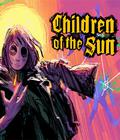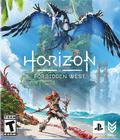
Genre: RPG
Publisher: Ubisoft
Developer: Sonnori Corp
Release Date: June 6, 2006
 The Korean gaming market, spurred as it was by Starcraft in the late '90s, didn't take long to begin challenging the U.S./Japanese dominance of the field, despite having a vastly different take on console gaming. Yet, outside of the online multiplayer realm, Korean efforts have fallen flat outside their home territory, despite having a strong Japanese-esque appeal. These games play like lesser Falcom games, and Astonishia Story is no exception. Their stories seem to follow the same pattern, but upon further examination reveal cultural details that, from Japanese games, would be considered the work of outsiders. The resulting creation is a game that is neither exceptional nor bad, but a solid, if derivative game that won't turn any heads nor receive a full-hearted recommendation. It is "Yet Another RPG 4," but with just enough fresh details that I won't write it off as Legend of Heroes 3. The best thing I can say is this: If you remember Shadow Madness or Septerra Core, you know that Astonishia Story at least proves that the Koreans are with the Japanese RPG picture more than any U.S. developer has proven so far.
The Korean gaming market, spurred as it was by Starcraft in the late '90s, didn't take long to begin challenging the U.S./Japanese dominance of the field, despite having a vastly different take on console gaming. Yet, outside of the online multiplayer realm, Korean efforts have fallen flat outside their home territory, despite having a strong Japanese-esque appeal. These games play like lesser Falcom games, and Astonishia Story is no exception. Their stories seem to follow the same pattern, but upon further examination reveal cultural details that, from Japanese games, would be considered the work of outsiders. The resulting creation is a game that is neither exceptional nor bad, but a solid, if derivative game that won't turn any heads nor receive a full-hearted recommendation. It is "Yet Another RPG 4," but with just enough fresh details that I won't write it off as Legend of Heroes 3. The best thing I can say is this: If you remember Shadow Madness or Septerra Core, you know that Astonishia Story at least proves that the Koreans are with the Japanese RPG picture more than any U.S. developer has proven so far.
Developer Sonnori has clearly played far too much of Shining Force and Dragon Warrior, which could have led to a well-paced, friendly strategy RPG. But their JRPG diet was supplemented by too many hours with early Falcom games (probably everything but Ys III: Wanderers from Ys), which gave them the terrible idea to pad the story with constant, unnecessarily long conversations with locals and an overly emotional story that manages to seem flat nonetheless, in that special way that only a disciple of Legend of Heroes possibly could.
While researching this review, I read a blogger's review that seemed to sum up my thoughts on this game very clearly, although not in the way he intended. He wrote that, when he opened up the game, he was looking forward to saving the world with some turn-based action. While he did note that the storyline felt like a regurgitation of almost every JRPG that came before it, his initial anticipation points out everything hat has been going wrong with the genre for almost 20 years. People expect to save the world. We're always defending the life-force of the Earth itself, or, usually, keeping some fascist from doing some oblique harm to every last upstanding citizen on the earth. And, somehow, these plots result in fighting a motley crew of thousands of irrational creatures that want nothing more than to kill and presumably consume every traveler that moves between established villages. No wonder towns are so far apart; there isn't any way to maintain a stable economy over large territories outside of monster killing supplies!
We're always – always – saving the world.
In this case, it's the world-saving antics of royal guard Lloyd (a name I swear has already been given to an RPG lead, probably within the decade, but I might be wrong), on a long quest to recapture the Royal Staff, a baffling device with which an evil elf plans to take over the world. Needless to say, the storyline makes one feel as though they have already played through the game about … well, let's say as many times as you've played through a JRPG.
Playing the game feels mostly the same way, except memories of the first Shining Force, Warsonand Robotrek (if you're one of the 15 people who played through that game) slide in between nightmares of Legend of Heroes. Okay, maybe the visuals remind me of Lufia, if it were slightly uglier. I'll stop with the comparisons, I promise (they come so easily!).
Move a few blocks. Attack. Special attack. Heal. Move back. Charge enemy. Special attack. Magic. Heal. Charge enemy. In any order. And there you have the battle system. No strange multipliers, nothing to distract from the very essence of video role-playing, and, unlike Dragon Quest, Astonishia Story goes about this with very little finesse (I lied about stopping comparisons, by the way. It's impossible not to, with this game). Somehow, DQ games add just the right features, in the right amount, to keep the game from getting completely boring for the entire 80 hours they take to play through. Astonishia Story is more like if Shining Force felt that long; even though AS isn't 80 hours long, it might feel that way for all but the strongest admirers. While amusing the first 200 times, these battles come just short of the point, click, and sit back battles that MMO players – many of whom are Korean, which may or may not have something to do with the state of this game – seem to enjoy, though most console players, myself included, don't understand it.
The one redeeming moment of this game was one that hearkened to the outsider moments in Earthbound, wherein Sonnori broke through the fourth wall like any post-Kojima game should, referring to how easy games are to pirate now and in the past – something that has more to do with the ease of piracy on the GP32 (the original home of this game) than on the PSP. Knowing that fact, these dialogue sequences were well written enough – better than the Legend of Heroes translation, for sure! – to keep me from completely hating Sonnori and Ubisoft.
Broken down to choosing an RPG for PSP, Astonishia Story is the best available next to the import-only Tales of Eternia, which you should get instead if you have access to it. But against Popolocrois and Legend of Heroes, is that really saying much? The wait for a good U.S. release of a PSP RPG continues.
Score: 6.0/10















